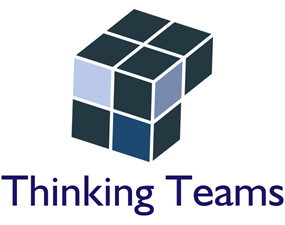AI is smart – it recognizes our faces, drives our cars, translates our languages, wins at Jeopardy, chess, and Go.
AI is scary – as if movies like Terminator aren’t frightening enough, prominent figures such as Stephen Hawking, Elon Musk, and Bill Gates have expressed strong concern that AI might eventually lead to disaster.
And AI is big, too. CEOs across the business spectrum are putting AI in their strategic plans, because they see the competitive advantage being gained by early adopters. An Oxford University study in 2013 predicted that half of US job categories are “at high risk of automation”.
No wonder people look over their shoulders, waiting to be overtaken by some tireless AI with access to unthinkable amounts of digital data and unbelievable computational power!
There is no question that AI is revolutionizing organizations and the world of work. It continues the digital revolution, which disrupted publication, photography, movies, music, telephones, business meetings and more, even creating new definitions of ‘community’ and ‘coworker’.
But thinking of the AI revolution as machines replacing people is a misleading oversimplification, just as it was earlier in the digital revolution. Consider this:
- Just like a pocket calculator, AI’s are ‘superhuman’ in very narrow specialities. Even Watson, the seemingly ‘wise’ IBM Jeopardy champion, is a master at learning statistical patterns and relationships in vast collections of human-composed documents. There is enough of a trace of human knowledge in these millions of documents to allow Watson to win at Jeopardy, but Watson does not possess anything like the practical knowledge of a human, even a child.
- All human jobs require adaptability, creativity, and social interactions that are way beyond AI in the foreseeable future. We may think what makes us special in our job is a rare talent for data collection and analysis, but that talent would be nothing but a parlor trick without the human ability to apply, adapt, learn, and interact.
These disruptive AI machines need people. In the first place, they need people to build and maintain them. In the second place, the masterfully calculated result an AI might give can only be just a part of any job. The AI’s part may be pivotal, enabling, competitive, disruptive. Can it do your job? No. Will it change your job? Yes.
So as AI’s come after our jobs, I think we have a choice. If we insist on doing our job the way it’s always been done, we might lose our job. If we embrace AI as the empowering tool it can be, we can elevate our job to one that contributes more value to our organization and frees us to do work that is more challenging and satisfying.


Well written reminder that all through history technological innovations have threatened, disrupted and provoked humans to change, mostly for the better. We won’t want to go back to farming, inefficient manufacturing, horse-centered transportation, narrow communication and lots of manual labor. So AI, while challenging our ethical commitments, is one more way we make possibilities into realities and raise the nature of work toward jobs that demand our creativity. LIfelong learning and continuous improvement are not new concepts but they are becoming more fundamental to our lives as civilization evolves.
LikeLiked by 1 person